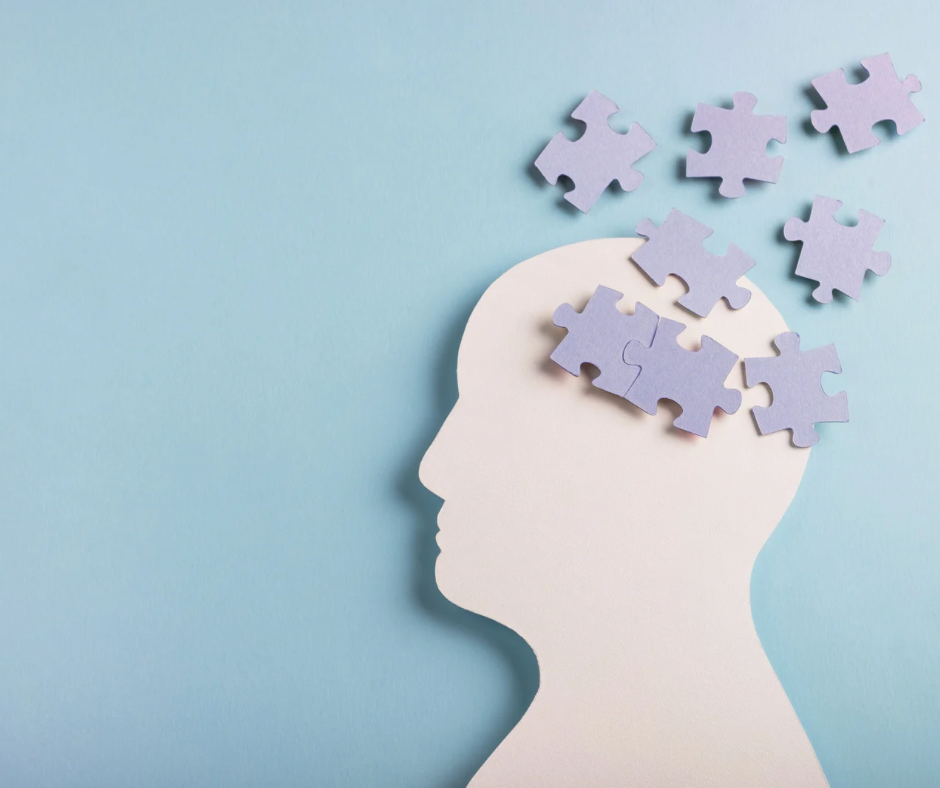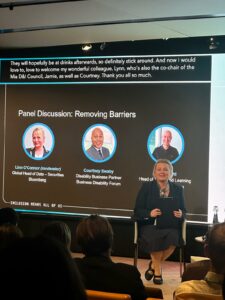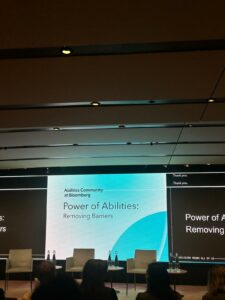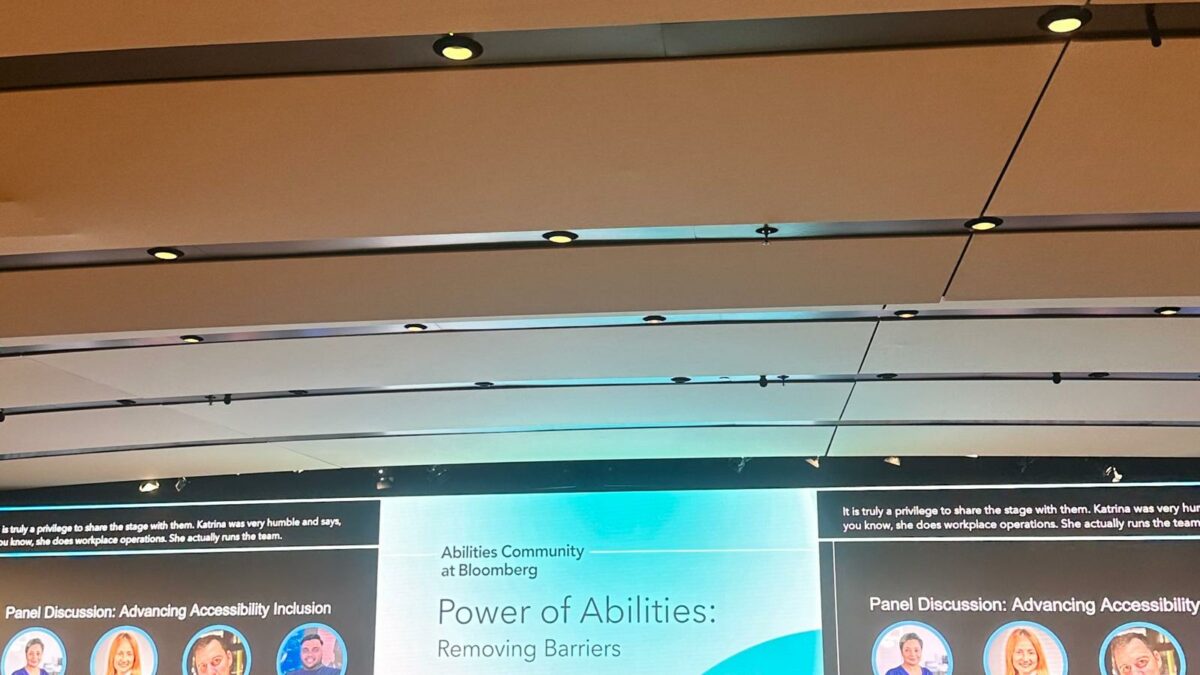
Commercial Awareness Update – W/C 25th November 2024
November 25, 2024
Movember 2024: Mitigating Stress and Burnout in Men
November 29, 2024By Sami Siari and Aybike Tasyurdu.
Reading time: four minutes.
“Diversity doesn’t look like anyone. It looks like everyone.” – Karen Draper.
To celebrate UK Disability History Month 2024, the Bloomberg Abilities Community hosted their annual ‘Powers of Abilities – Removing Barriers’ event, aimed at tackling stigmas surrounding the issue of disability within the workplace.
The panel of expert speakers included:
- Todd Coletto – Head of EMEA Rates Strategy & Business Development at Citi.
- Rubayet Ahmed – Advanced Equity Specialist at Bloomberg.
- Miren-Edurne De Frutos – ASF Trader at J.P.Morgan.
- James Ward – Head of Talent and Learning at Channel 4 Television.
- Courtney Swaby – Disability Business Partner at the Business Disability Forum.

Stereotypes surrounding disability
- Disability = Physical
Although it’s natural to conceptualise disability as a physical impairment, it’s important to note that 70-80% of disabilities are estimated to be invisible. This is the reality for Todd (suffering with POTs), Miren (managing her dyslexia and ADHD), and James (dealing with blindness).
On average, it usually takes around seven years for someone to get diagnosed with POTs, however for Todd, it took over 22 years. Miren also found herself in a similar scenario; her dyslexia was only discovered as an adult. As for James, hearing comments such as “Oh, but you don’t look blind”, is not an unfamiliar experience. Trying to explain their disabilities to people who perceive all disabilities as tangible, is a particularly frustrating element of dealing with invisible disabilities that all three speakers wished would change.
- Disabled = Incompetent
“Become a paralympian or stay at home” – for Rubayet, his spinal cord injury meant he has been a wheelchair user for six years. Being in environments that lacked cultural exposure to wheelchair users, fears that potential employers would see his physical conditions and write him off as incapable put a great deal of pressure on Rubayet. Miren made the crucial point of disabled people providing alternative perspectives to a business. Hiring people with disabilities is not philanthropy. They provide companies with diversity of thought, which is an asset that she stressed all businesses would be smart to utilise. Todd added that his disability conditioned him into being somebody who remains level-headed during crises. Battling such a complex disorder throughout his entire life, equipped Todd for crises better than those who haven’t – “I’m in a crisis every day”. This showcases how disabilities can be transformative assets for businesses, instead of burdens.
Innovative adaptations used by disabled individuals
Rubayet emphasised that for wheelchair users, seamless designs of ramps is true inclusivity. The architecture of a building is what determines his experience. Buildings with accessible design is what helps wheelchair users feel seen and included. Rubayet also noted his interest in seeing how self-driving cars, like Tesla, can be manufactured to aid wheelchair users to forge a future of ease and efficiency in transportation for them.
Read this article to find out how British courtrooms can become more accessible: https://thestudentlawyer.com/2024/07/15/how-do-we-make-our-british-courtrooms-more-accessible/
For Miren, the introduction of ChatGPT improved her working routine for the better. Miren found it helped her summarise complex spreadsheets more efficiently. She stressed the importance of such technologies, especially for those dealing with dyslexia. AI ChatGPT helps her conceptualise the data and creates a digestible synopsis of a myriad of documents.
Read this article to find out how Al can transform the legal sector: https://thestudentlawyer.com/2024/06/16/law-meets-ai/
Despite James’ blindness, his connection with the outside world greatly improved with the invention of the Meta glasses. The glasses have built-in technology that can describe James’ surroundings on his request. James has been able to use this technology to partially compensate for his lack of vision with these glasses. Thus, demonstrating how developing technologies can make the lives of blind people easier and more comfortable.
Courtney held that companies should manufacture their products with consideration for accessibility to disabled people, as it benefits everybody. This is cheaper than modifying products later on. He mentioned that the electric toothbrush was a manifestation of this idea, as it was created for blind people. Despite the product’s focus on blind people, it has improved the dental care of everyone.
Read this article to find out how legislation can advance equality for people with disabilities: https://thestudentlawyer.com/2024/08/23/the-role-of-legislation-in-advancing-equality/
Respectful approaches to the topic of disability
Todd felt that the misconception of disabled people needing the utmost help at all times can be damaging. Disabled people know their abilities better than anyone else and are able to accurately assess their abilities. Todd would rather his managers create an environment to ask for help, instead of help be given to him unnecessarily.
Rubayet echoed Todd’s opinion, for him, maintaining a level of autonomy enables him to gain confidence and identity in terms of navigating the world; they want to be treated equally as everyone else. For Miren, asking for help remains uncomfortable, but it has become less daunting with time. Businesses should transparently demonstrate their achievements in terms of tracking diversity and enhancing awareness about disabled people’s needs. For Miren, this reflects the businesses values, which fosters a positive culture of asking for support. James noted his distaste for unsolicited advice when people attempt to consult disabled people. It’s unnecessary and should be avoided in order to improve the approach in terms of the topic of disability. Courtney felt that a respectful approach to this topic is simply asking. Making respectful mistakes along the way should not be taboo. Asking respectful questions helps this topic become less uncomfortable to speak about and can help dismantle bias and stereotypes
So, what is the takeaway?
For disabled people, whether their conditions are visible or invisible, the persistence of barriers will cease to exist only when we take collective action to end it. Though many firms are working on improving diversity and inclusion (D&I) issues, there is still a level of bias felt by a plethora of disabled individuals, which is imperative. Including more disabled people in law firms will not only provide diverse perspectives, but will also demonstrate to others that a disability is not an inability. Developments to D&I play a wider role of dismantling structural defects and discriminative stereotypes. Dismantling such defects is the positive impact that everybody should aspire to achieve – not just on an individual level, but in the workplace too.
If you enjoyed reading this summary, check out this write up at Bloomberg’s Black History Month event: https://thestudentlawyer.com/2024/11/11/event-summary-power-of-difference-reclaiming-our-narrative-at-bloomberg/





